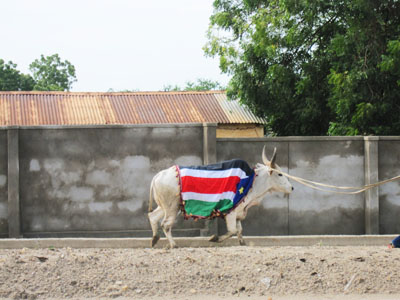
Just as preparations for the referendum on South Sudan’s self-determination looked to be gaining momentum, with the belated formation of the South Sudan Referendum Commission and preliminary post-referendum talks taking place in Ethiopia, delays and missed deadlines are once again threatening to derail the process.
Post-referendum negotiations between the ruling NCP and SPLM, originally set to begin on Monday, have already been pushed back – a setback that was all the more disappointing given the promising clarity and detail of the Memorandum of Understanding signed by the two ruling parties last week, which laid out the structure and timeline of these crucial talks. That the parties missed this first date on their newly agreed upon timeline is a worrying indicator of events to come.
Voter registration for the referendum will also be significantly delayed. The process was most recently set to begin this Friday, July 9 – an impossibility given that the commission charged with administering the registration is all but two weeks old. South Sudan’s Information Minister said, in a bit of an understatement: “[W]e are running a little bit late.”
In the meantime, northern and southern political elites are busy with referendum preparations in other ways. Not by facilitating the printing of ballots or launching a civic education campaign, but by imposing on their respective populations the official party line toward the referendum.
In the North, the NCP has indefinitely banned the newspaper Al Intibaha, because of its pro-secession views. Said one NCP official, “[…] according to the CPA, there is nothing called absolute freedom whenever you exceed the limit of freedom which will harm the people of Sudan and the unity of Sudan.” The ruling party’s unity campaign, as Sudanese political commentator Magdi Elgizouli pointed out on his blog, is as much aimed at priming the northern population for separation, as it is to convince the South otherwise:
Unity propaganda is not addressing a Southern constituency in any sincere sense; rather it reflects an NCP pre-emption of the consequences of secession on its image in the North. The NCP wants to convince its Northern constituency that it has done all things necessary for unity, and it is actually the Southerners who refuse to receive the extended NCP hand.
In the South, the SPLA is cracking down on any sign of dissent that can – in their view – open the way for northern manipulation or disruption of the referendum. Aid officials recently accused southern soldiers of arresting and beating four aid workers in Upper Nile state on the grounds that they were suspected of supporting anti-government militias. Sources on the ground indicate that similar activities are also taking place in Unity state.
With six months and one day left to go before the referendum vote, the continuing procrastination and heavy-handed managing of the population by both ruling parties should be of huge concern to the international community.

